129 artículos:
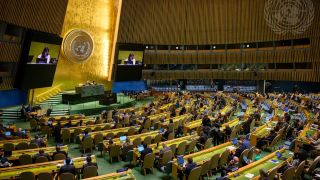
This historic resolution represents a crucial step forward for the abolitionist movement.

PGA acknowledges the leadership and tireless efforts of Zimbabwean parliamentarians, including PGA Members and most notably Hon. Dorcas Sibanda, whose collective unwavering commitment has made this historic achievement possible.
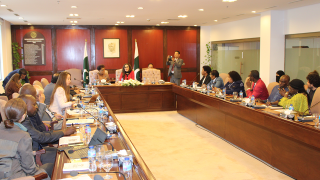
PGA brought together parliamentarians from different regions around the world, to discuss and strategize towards the abolition of the death penalty.

Each year on 10 October, the global abolitionist movement comes together to observe the World Day Against the Death Penalty. “The Death Penalty Protects No One: Abolish it Now.”
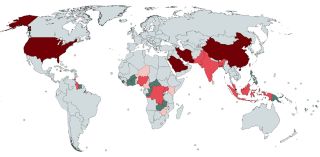
The death penalty remains a significant human rights concern. In 2023 alone, Amnesty International recorded 1,153 executions marking a 31% increase from the previous year and the highest since 2015.

It is with profound concern that PGA became aware this morning of the communication of a circular from the Ministry of Justice of the Democratic Republic of the Congo formalizing the decision to lift the moratorium on the death penalty in the country.

The ratification comes 2.5 years after the ratification of the Second Optional Protocol to the International Covenant on Civil and Political Rights (ICCPR), aiming at the abolition of the death penalty (ICCPR-OP2) by the Government of Armenia which took place on 18 March 2021.
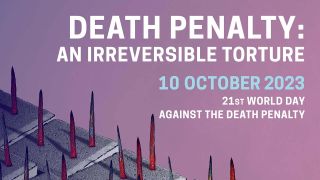
Capital punishment constitutes a grave violation of international standards and human rights law, as it inflicts torture and other forms of ill-treatment on death row inmates – the prohibition of which is nevertheless a peremptory norm of international law.
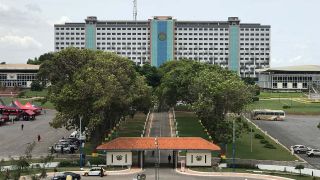
The adoption of the Criminal Offences (Amendment) Bill, 2022, replacing capital punishment with life imprisonment, marks a significant milestone as it aligns Ghana’s criminal system with international best practice

El primer trimestre del año estuvo marcado por la apertura de la 52ª sesión ordinaria del Consejo de Derechos Humanos y la organización de la mesa redonda bienal de alto nivel sobre la pena de muerte.

Torture, as a peremptory norm of international law, must always be prohibited under all circumstances. Yet, it still does persist in various corners of the world.

El primer trimestre del año estuvo marcado por la apertura de la 52ª sesión ordinaria del Consejo de Derechos Humanos y la organización de la mesa redonda bienal de alto nivel sobre la pena de muerte.

PGA welcomes the unprecedented support towards the adoption of the UN resolution A/RES/77/222, for a universal moratorium on the use of the death penalty, which took place on 15 December.
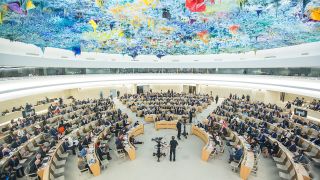
The 51st session of the Human Rights Council concluded in Geneva (12 September – 7 October), during which the Secretary General presented his report (A/HRC/51/7) to update previous reports on the question of the death penalty, including the quinquennial report of the Secretary-General.

Today, October 10 marks the 20th International Day Against the Death Penalty, an important moment to recall the importance of our efforts to advance the abolitionist movement, for which parliamentarians have played and continue to play a crucial role.
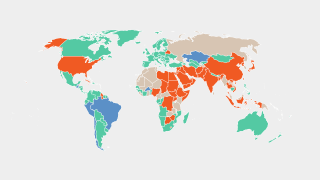
Filipinas fue el primer país asiático en abolir la pena de muerte en virtud de la Constitución de 1987, pero fue reimpuesta durante la administración del Presidente Fidel Ramos para abordar el aumento de la tasa de criminalidad en 1993...

Parliamentarians condemn politically motivated executions by the military junta of Myanmar and urge all States and International Organizations to take immediate countermeasures against the dictatorship.

PGA welcomes such an important development for the status of human rights in the Central African Republic: although the country had been abolitionist in practice as no executions have taken place since 1981, legally ensuring the abolition of the death penalty is a crucial step to prevent any ratchet effect.

Malaysia Law Minister Wan Junaidi Tuanku Jaafar has indicated that its Cabinet had agreed to abolish the mandatory use of the capital punishment for serious crimes and replace it by “alternative punishments” applied at the discretion of the courts.

PGA strongly condemns the execution of Mr. Nagaenthran Dharmalingam on 27 April 2022, which testifies to the failure of the Singaporean judicial system and of Malaysian authorities to protect and uphold fundamental principles under international law.

Given that Mr. Nagaenthran Dharmalingam is intellectually disabled, and committed a non-violent crime, we sincerely appeal for the authorities of Singapore to pardon Mr. Nagaenthran Dharmalingam’s death sentence.

Chair of PGA’s UK National Group, Mr. Mark Pritchard MP, asks the Secretary of State for Foreign, Commonwealth and Development Affairs, if she will hold discussions with her counterparts in Commonwealth countries on ending the death penalty.

PGA, together with WCADP, organizied an online event on "How to Work with Parliamentarians for the Abolition of the Death Penalty" on 20 October 2021
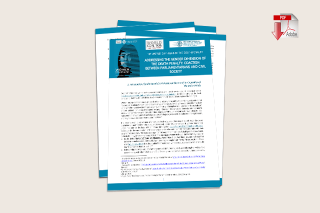
A pesar de que las mujeres sólo representan alrededor del 5% de todos los condenados a muerte, es esencial tomar medidas para garantizar que las mujeres no sufran discriminación de género en la aplicación de la pena capital.

On behalf of PGA we welcome your commitment to justice, equality and fairness and your vow to end the federal death penalty
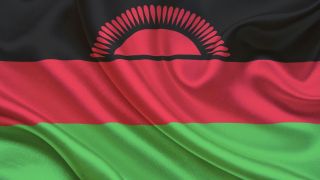
On 28 April 2021, the Supreme Court of Appeal of Malawi declared the death penalty unconstitutional as an impermissible derogation from the right to life under the Malawi’s Constitution

PGA welcomes the ratification on 19 March 2021 by the Government of Armenia of the Second Optional Protocol to the International Covenant on Civil and Political Rights (ICCPR), aiming at the abolition of the death penalty..

Virginia (USA) Governor Ralph Northam signed into law a bill that ends capital punishment in the State. Virginia has thus become the first Southern US State to abolish the death penalty.

Para conmemorar el 18º Día International contra la Pena de Muerte, el Grupo Nacional de PGA, junto con el Grupo Parlamentario de Derechos Humanos de la Asamblea Nacional del Ecuador, organizaron un seminario virtual.
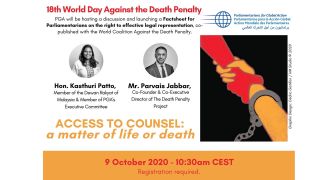
Para conmemorar el 18º Día Mundial contra la Pena de Muerte, que se celebra el 10 de octubre, PGA organizará un seminario web para debatir el derecho a una representación legal efectiva en casos de pena capital y, lanzará igualmente, una Guía Parlamentaria ...
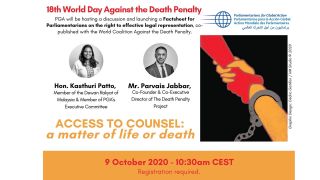
To mark the 18th World Day Against the Death Penalty, members of the World Coalition Against the Death Penalty (WCADP) focused on the right to effective legal representation.

El 28 de abril de 2020, la Asamblea Nacional de Chad votó para enmendar su proyecto de ley antiterrorista de 2015, aboliendo así la pena capital para todos los delitos capitales existentes en el país.

On 28 April 2020, the National Assembly of Chad adopted with a historical unanimous vote the full abolition of the death penalty for all crimes.

Dorcas Sibanda says while Zimbabwean President Emmerson Mnangagwa has done well to commute death sentences to life imprisonment, he should have completely abolished the death sentence as stipulated in the national Constitution.
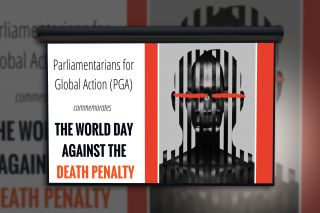
EE.UU. decide reanudar las ejecuciones federales

Malasia tiene un estatus de retencionista de la pena de muerte. Llevó a cabo 4 ejecuciones en 2017 y más de 38 personas recibieron una sentencia de muerte.

Commemorated since 2003, the World Day Against the Death Penalty (WDADP) on 10 October raises awareness of the conditions and the circumstances which affect prisoners with death sentences and offers an opportunity to advocate for its abolition worldwide.

Malaysia’s move to abolish the mandatory death penalty is a valiant display of courage to uphold restorative justice and to return discretionary judiciary powers back to the courts as a breakthrough to fight crime and punish criminals instead of...

EE.UU. decide reanudar las ejecuciones federales

Cada año, más Estados optan por declarar una moratoria sobre el uso de la pena de muerte o abolirla por completo.
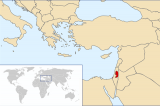
Palestina accede al Segundo Protocolo Facultativo del Pacto Internacional de Derechos Civiles y Políticos, destinado a abolir la pena de muerte (ICCPR-OP2)

This historic achievement is an excellent reminder that it is essential to continue mobilizing against the death penalty, particularly when it is applied disproportionately against minorities and vulnerable groups.
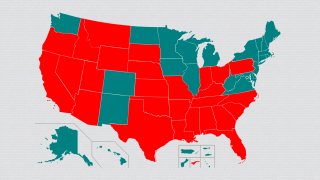
Los Estados Unidos es un país retencionista. Sin embargo, 21 estados y el Distrito de Columbia han abolido la pena de muerte, incluido el estado de New Hampshire en 2019.
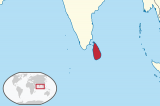
Sri Lanka es un país abolicionista de facto, ya que llevó a cabo su última ejecución en 1976. El país condenó a muerte a al menos 17 personas, pero no llevó a cabo ninguna ejecución en 2018.
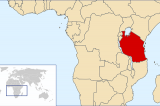
Kenia es un país abolicionista de facto, no ha llevado a cabo una ejecución desde 1987. El país condenó a muerte a al menos 12 personas, pero no llevó a cabo ninguna ejecución en 2018.
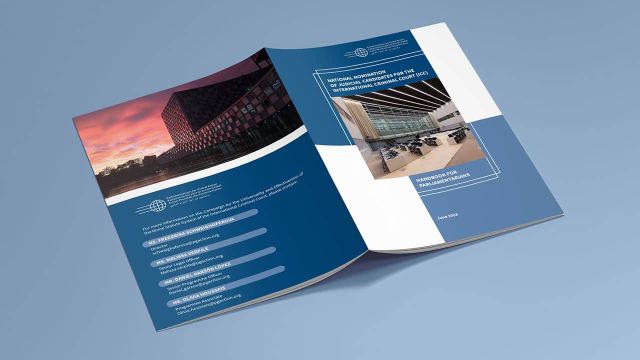
Japón es un país retencionista. El país condenó a muerte a 4 personas y llevó a cabo 15 ejecuciones en 2018.
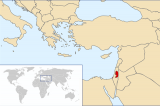
El Estado de Palestina es abolicionista de facto, no ha llevado a cabo ninguna ejecución desde 2002.

PGA Members from Lebanon, Morocco and Tunisia welcome the news that the State of Palestine has deposited on 18 March 2019 the instrument of accession to the Second Optional Protocol to the International Covenant on Civil and Political Rights...

By signing an executive order implementing a moratorium on executions, Governor Newsom has shown shown remarkable leadership.

Del 26 de febrero al 1 de marzo de 2019, Parlamentarios para la Acción Global (PGA) asistió al 7º Congreso Mundial contra la Pena de Muerte.
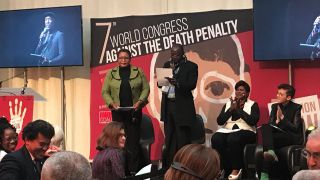
From 26 February to 1 March 2019, Parliamentarians for Global Action (PGA) attended the 7th World Congress against the Death Penalty, organised by its partner organisation Ensemble contre la peine de mort (ECPM, Together Against the Death Penalty).
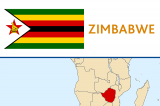
Zimbabue es abolicionista de facto: aunque mantiene la pena de muerte en su legislación penal, el país no ha llevado a cabo ninguna ejecución desde 2005.
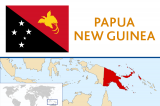
Papua Nueva Guinea es abolicionista en la práctica desde 1950: aunque mantiene la pena de muerte en la ley, no se ha llevado a cabo ninguna ejecución desde 1954.
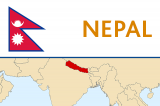
La Constitución de Nepal abolió la pena capital en 1990 y en 1997 se enmendó la ley penal para abolir todos los delitos.
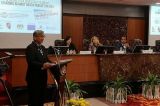
El Ministro de Ley de Malasia anuncia un proyecto de ley que abolirá la pena de muerte para 33 delitos
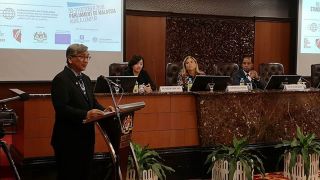
Participants discussed and adopted an Action Plan, calling on the parliamentarians of the region to mobilise their efforts against capital punishment.

Parliamentarians for Global Action (PGA) Malaysia will work towards the abolition of the death penalty with support from the opposition.

On 10 October, which marks World Day against the Death Penalty, PGA wishes to celebrate the efforts of its members throughout the world to stand against capital punishment.

América Latina es la segunda región del mundo concentrando la mayor cantidad de Estados abolicionistas de la pena de muerte para todo tipo de crímenes.

El equipo de PGA sobre la Abolición de la Pena de Muerte (ADP, por sus siglas en inglés) le trae el primer reporte trimestral para mantenerle informado sobre los acontecimientos más relevantes en relación a la pena capital alrededor del mundo...

Uganda es abolicionista de facto, ya que la última ejecución tuvo lugar en 2005. Sin embargo, en 2017, más de 250 personas permanecieron en el corredor de la muerte.

Togo es un país abolicionista desde 2009, cuando se eliminó la pena capital del Código Penal del país.

La Constitución suiza prohíbe el uso de la pena de muerte. La pena capital fue abolida en los tribunales civiles en 1942 y en los tribunales militares en 1992

Desde marzo de 2015, Surinam es un país abolicionista. No se han llevado a cabo ejecuciones en Surinam desde 1927.

Pakistán sigue siendo un país retencionista, luego de haber levantado su moratoria sobre las ejecuciones en diciembre de 2014.
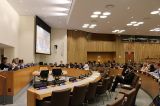
La pena de muerte fue abolida por completo en Noruega en 1979 y su estatus de abolicionista quedó consagrado en la Constitución en 2014.

Níger es formalmente retencionista, pero ha aplicado una moratoria desde 1976. En 2018, no se dictó sentencia de muerte y se desconoce cuántas personas permanecen en el corredor de la muerte.
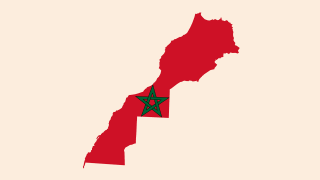
Marruecos es un país abolicionista de facto, ya que no ha llevado a cabo ninguna ejecución desde 1993.

Mali es formalmente retencionista pero ha aplicado una moratoria desde 1980, aunque se informa que se han llevado a cabo ejecuciones en territorios controlados por grupos armados durante la crisis de 2012.

Desde que se llevó a cabo la última ejecución en 1967, Australia ha abolido oficialmente la pena de muerte en todo el país.

El Líbano es retencionista pero aplica desde 2004 una moratoria. En 2017, políticos prominentes pidieron que la pena de muerte se ejecute nuevamente.

Jordania es un país retencionista. El país condenó a muerte a por lo menos 16 personas, pero no llevó a cabo ninguna ejecución en 2018.

Irak es un país retencionista. En 2017, el número de ejecuciones en Irak continuó el aumento que había comenzado en 2016, con más de 125 ejecuciones llevadas a cabo y más de 65 sentencias de muerte impuestas.

Al finalizar una moratoria de cinco años no oficial que comenzó en 2008, Indonesia reanudó las ejecuciones en 2013.

India sigue siendo un país retencionista. En 2017, al menos 109 personas fueron condenadas a muerte en la India y se informó que 371 estaban condenadas a muerte.

Guinea se convirtió en abolicionista después de que el Parlamento aprobara el 4 de julio de 2016 una ley que reformando el Código Penal y eliminando la pena de muerte de las penas disponibles para los jueces.

La República Democrática del Congo es un estado abolicionista de facto, ya que ejecutó una sentencia de muerte por última vez en 2003.

La pena de muerte se ha abolido con éxito en Costa de Marfil gracias al apoyo del Grupo Nacional de PGA a favor de los dos proyectos de ley adoptados por el Gobierno el 15 de febrero de 2015, que modificaron el Código de Procedimiento Penal y el Código...

En 2015, Chad reanudó las ejecuciones, después de un período de 12 años sin que se ejecutara ninguna sentencia de muerte.

La República Centroafricana es retencionista formalmente pero ha aplicado una moratoria desde 1981.

Camerún es un estado abolicionista de facto, cuya última ejecución tuvo lugar en 1997. Sin embargo, el Código Penal adoptado en 2016 aún mantiene la pena de muerte, especialmente para delitos relacionados con el terrorismo.

Burkina Faso es abolicionista desde el 31 de mayo de 2018, cuando la Asamblea Nacional aprobó un nuevo Código Penal aboliendo la pena de muerte para todos los delitos comunes.

Parliamentarians from West and Central Africa shared their experiences and discussed the future of the abolitionist movement in the region.

On 7 May 2018, parliamentarians and civil society met in Jakarta to consult on the Indonesian Judicial System, Penalties and Human Rights in the Reformed Draft Criminal Code.

On 3 April 2018, parliamentarians and civil society representatives met to discuss Addressing Inequalities of the Criminal Justice System and the Death Penalty.

We, the 40 undersigned organisations are most disturbed and saddened that at least 10 persons have been victims of the mandatory death penalty for drug trafficking despite law abolishing the practice.

On 29 November 2017, Parliamentarians for Global Action organised a parliamentary roundtable, Entitled “Moving Away from Capital Punishment in Asia”...

Mr. Farhatullah Babar, MP (Pakistan) is a new PGA Member.

PGA welcomes the decision of at least nine of the twenty-four Senators to speak out against the bill reintroducing the death penalty in Filipino law.

PGA, a member of the World Coalition against the Death Penalty (WCADP), is launching today a Parliamentary Factsheet on Poverty and the Death Penalty.

La desproporcionada severidad de las sanciones penales hacia las personas afectadas por la pobreza es una cuestión de debate público, que debería ser abordada por los parlamentarios como representantes electos del pueblo.

PGA congratulates the government of Malaysia for having announced that the Cabinet had approved a bill that would abolish the mandatory death penalty for drug-related crimes.

PGA is deeply concerned at reports of severe political repression in the Maldives, including serious violations of the constitutional and democratic processes and the arrest of several opposition Members of Parliament.

On 25 July 2017, parliamentarians, representatives from civil society and the diplomatic community met in the Parliament of Malaysia, in Kuala Lumpur, to discuss the abolition of the death penalty in the region.

Batu Kawan MP Kasthuri Patto says there is no point talking about respecting human rights without committing to see it through.

President of Parliamentarians for Global Action (PGA), Dip. Margarita Stolbizer (Argentina), denounces the use of the death penalty by the United States and calls for the commutation of death sentences to life imprisonment.

PGA members attended a workshop on the abollition of the death penalty, held on 19 and 20 December 2016 in Ouagadougou (Burkina Faso).

On 20 October 2016, PGA in consultation with the World Coalition against the Death Penalty (WCADP), launched a Parliamentary Factsheet on the Death Penalty and Terrorism-Related Offences

Parliamentarians for Global Action (PGA), in consultation with the World Coalition against the Death Penalty (WCADP), is launching today a Parliamentary Factsheet on the Death Penalty and Terrorism-Related Offences.

Por qué la pena de muerte para delitos relacionados con el terrorismo es ineficaz, contraproducente y viola los derechos humanos

The Dominican Republic has acceded to the Second Optional Protocol to the International Covenant on Civil and Political Right (ICCPR-OP2).

Let’s say no to the death penalty

PGA side-event to the 6th World Congress against the Death Penalty

PGA celebra la aprobación el 4 de julio 2016 en Conakry, de la ley de reforma al Código Penal y el Código Procesal Penal de Guinea.

PGA members in Uganda wish to have that bill passed before the end of the current session of parliament, which ends on 16 May 2016.

The world saw the highest number of recorded executions since 1990 and almost 90 percent occurred in Iran, Pakistan and Saudi Arabia, according to a new report.

Media statement by PGA members Hon. Kulasegaran, Hon. Dr Siti Mariah, Hon. Thomas Su and Hon. Kashthuri Patto
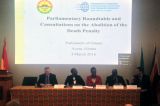
The Roundtable sought to analyse the national and international legal frameworks on the death penalty and address the situation of the death penalty in Ghana to identify the measures to overcome local challenges and obstacles.

PGA organized a Field Visit to Indonesia on 24-25 February 2016, to hold Consultations on the abolition of the death penalty.

parliamentary question (27318)

Through the Parliamentary Platform, PGA has launched targeted campaigns in selected countries, including Malaysia, to raise awareness among Parliamentarians, strengthen political will and provide technical assistance for initiatives on this issue.

While a relative majority of States have taken abolitionist positions and the number of executions has decreased in 201, 58 States still apply the death penalty

Parliamentarians for Global Action (PGA) welcomes the ratification of the Second Optional Protocol to the International Covenant on Civil and Political Rights (ICCPR) by the Parliament of Togo on 10 July, 2015.

From 10 to 13 June, PGA conducted a field mission on the abolition of the death penalty and the fight against impunity in the margins of the South-East Asia Regional Congress on the abolition of the death penalty organized by Ensemble Contre la Peine de M

PGA organized on Sunday 3 May a Roundtable meeting on the abolition of the death penalty in Tanzania and Uganda in Dar es Salaam with the participation of Parliamentarians from Tanzania and Uganda

PGA welcomes the abolition of the death penalty by the Parliament of Suriname, in the framework of the discussions regarding the adoption of the new Criminal Co

PGA wishes to express its consternation at the decision by an Iraqi Court to sentence to death former Sunni MP Ahmed al-Alwani on 24 November, 2014.
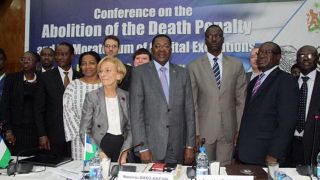
On January 13-14, 2014 PGA Board Member Mr. Mark Pritchard, MP (UK) participated in Regional Conference on the Abolition of the Death Penalty in Freetown, Sierra Leone.

On July 15, 2013, the PGA Executive Committee together with the PGA International Law and Human Rights Program took the decision to start preparations towards the creation of a Campaign for the Abolition of the Death Penalty.

Following an Executive Committee decision in July 2013 Parliamentarians for Global Action (PGA), with the encouragement of the UK All-Party Group on the Abolition of the Death Penalty has started preparations towards the creation of the global parliamenta

Statement by PGA Board Member Ruth Wijdenbosch for the Abolition of the death Penalty Press Releases News Center

